*NURSING > QUESTIONS & ANSWERS > ATI RN MENTAL HEALTH NURSING STUDY GUIDE WITH QUESTIONS,ANSWERS AND RATIONALE{100%CORRECT AND VERIFI (All)
ATI RN MENTAL HEALTH NURSING STUDY GUIDE WITH QUESTIONS,ANSWERS AND RATIONALE{100%CORRECT AND VERIFIED
Document Content and Description Below
. A nurse is caring for a client whose child has a terminal illness. The client requests information about how to deal with the upcoming loss. Which of the following statements should the nurse mak... e: a. "It will be better for you to keep busy to avoid thinking about your child's death." Encouraging the client to avoid thinking about the child's death will not allow the client to begin anticipatory grieving. b. "You will complete the grieving process about a year after your child's death." The grief process has no timeline. It varies for each individual. c. "The grief process will start once your child actually dies." The client can begin anticipatory grieving during the child's illness. d. "It is not uncommon to feel angry toward yourself or others." Feelings of blame and anger towards oneself or others are an expected reaction when a client is experiencing a loss. 2. A nurse is teaching a client who has bipolar disorder and a prescription for lithium. Which of the following instructions should the nurse include in the teaching? a. "Take this medication with food." Lithium can cause gastrointestinal distress. Therefore, this medication should be taken with food. b."Reduce sodium intake to 1,000 milligrams each day." The client should maintain an adequate and consistent sodium intake to decrease the risk for lithium toxicity. The recommended sodium intake for adults is 1,500 mg/day. c."Limit fluid intake to 1,200 milliliters each day." The client should consume 2,000 to 3,000 mL/day of fluids during initial treatment with lithium. d."Be aware that this medication can be addictive." Lithium is not classified as an addictive medication. 3. A nurse is planning care for four clients in a mental health facility. Which of the following clients is at the greatest risk for injury when performing ADLs a. A client who has severe Alzheimer's disease The greatest risk to this client is injury from performing ADLs. Clients who have severe Alzheimer's disease are typically confused, have memory difficulties, tend to wander, and need assistance to perform ADLs. b.A client who is in the maintenance phase of schizophrenia [Show More]
Last updated: 1 year ago
Preview 1 out of 34 pages

Reviews( 0 )
Document information
Connected school, study & course
About the document
Uploaded On
Aug 21, 2021
Number of pages
34
Written in
Additional information
This document has been written for:
Uploaded
Aug 21, 2021
Downloads
0
Views
42


.png)
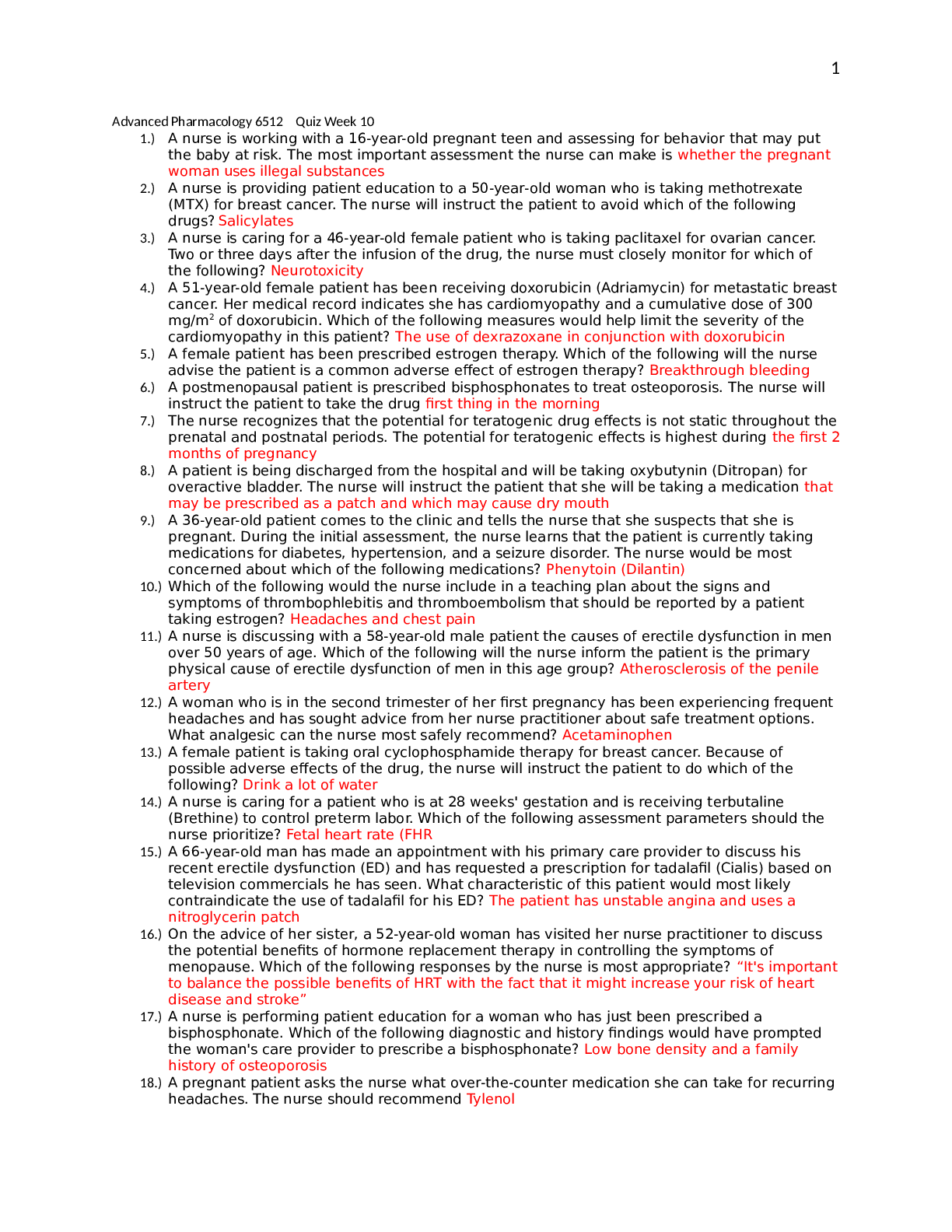
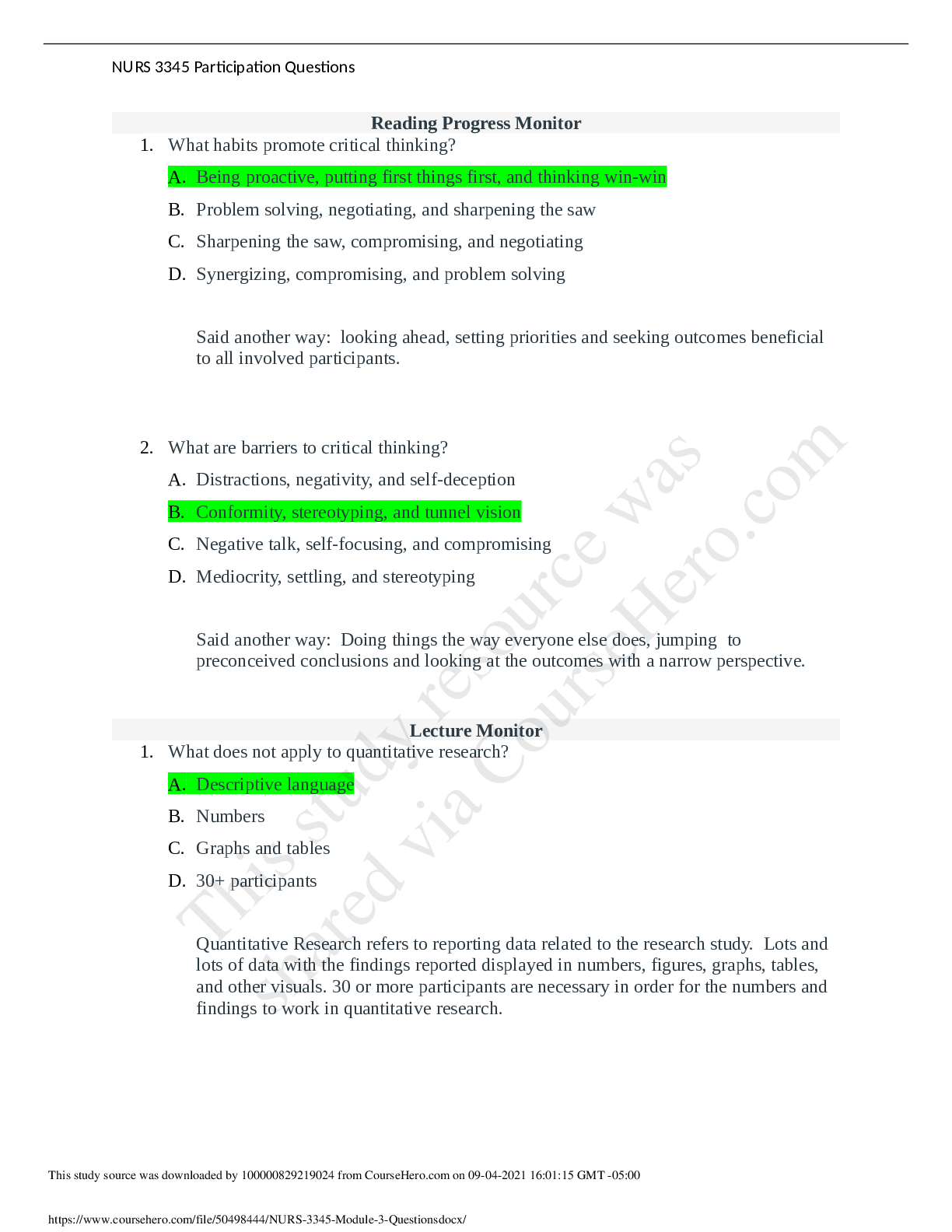
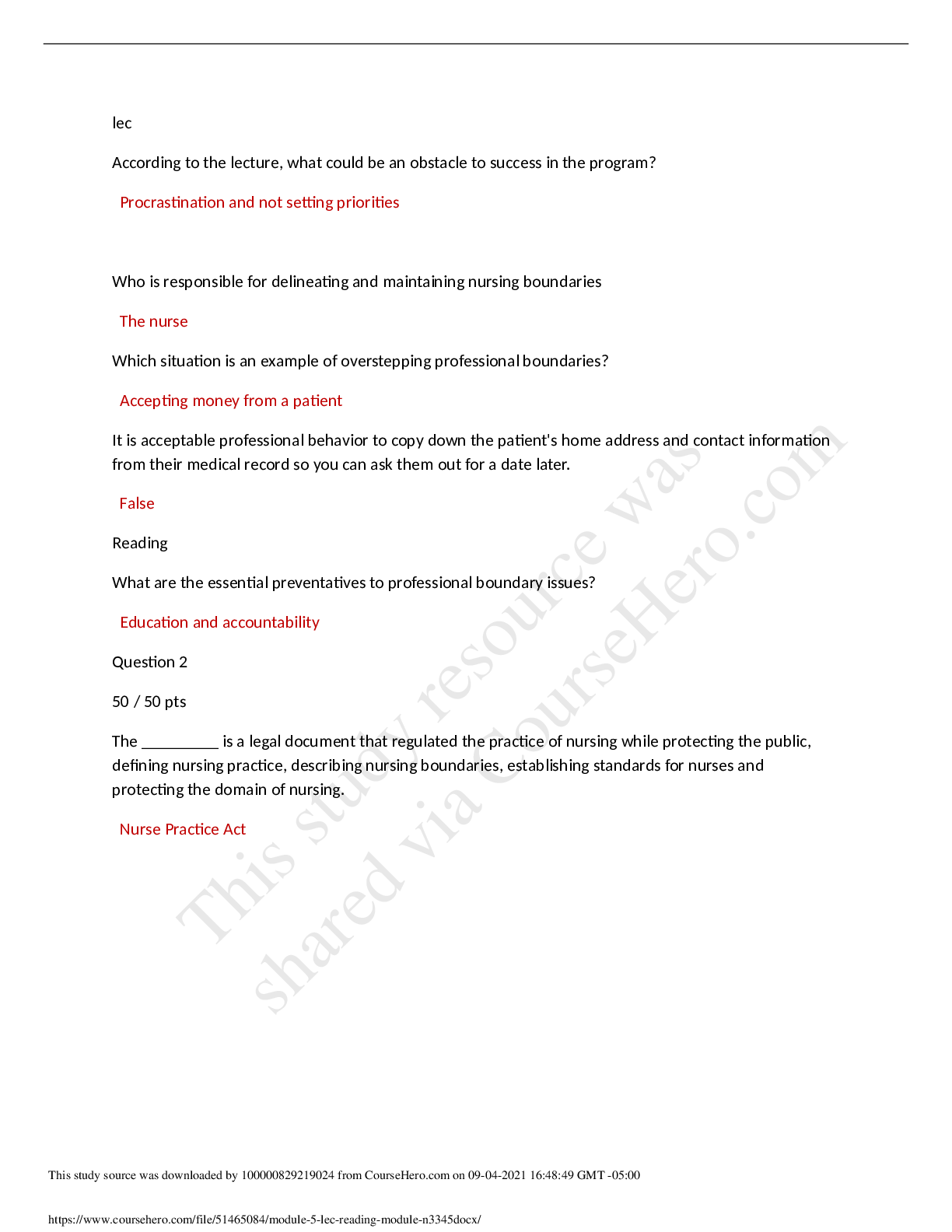
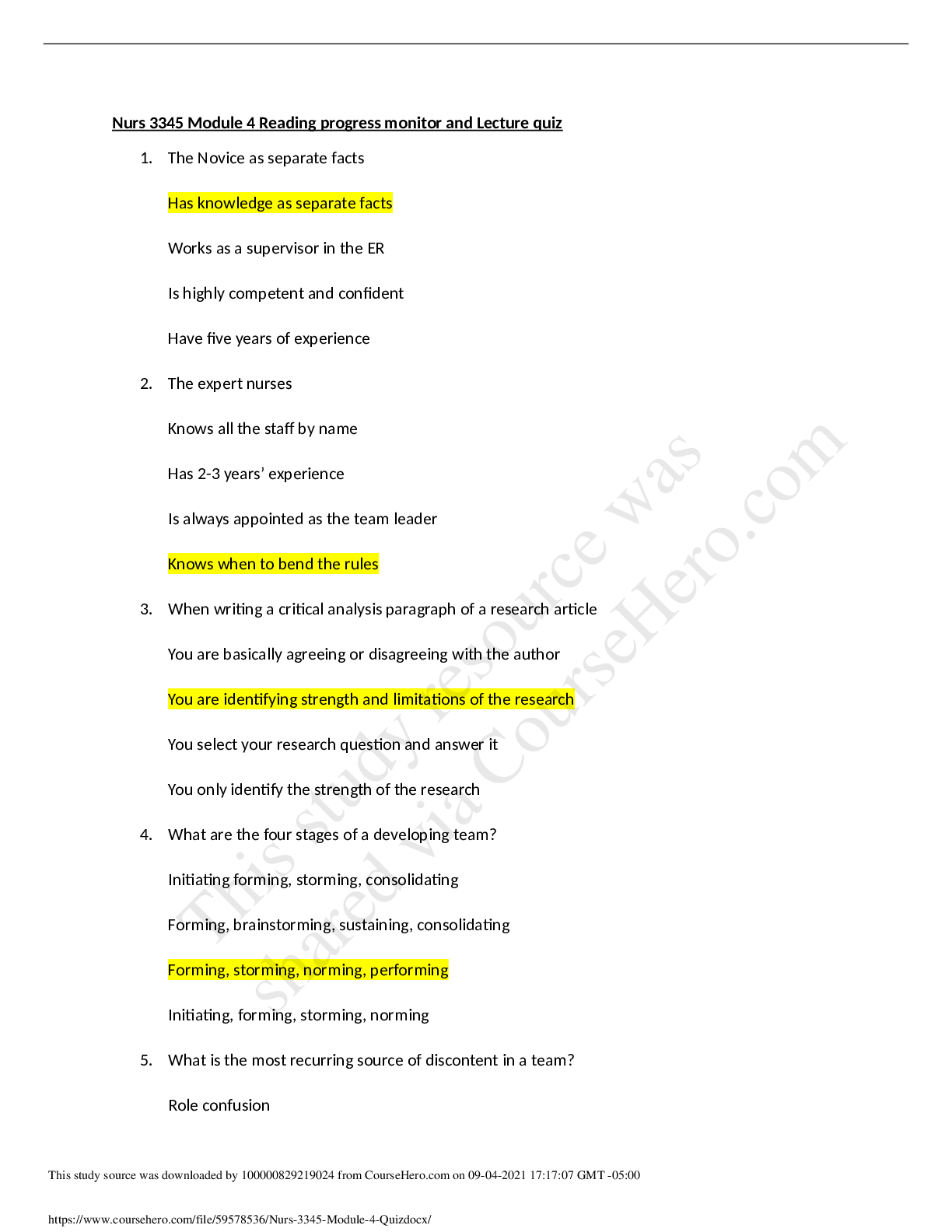
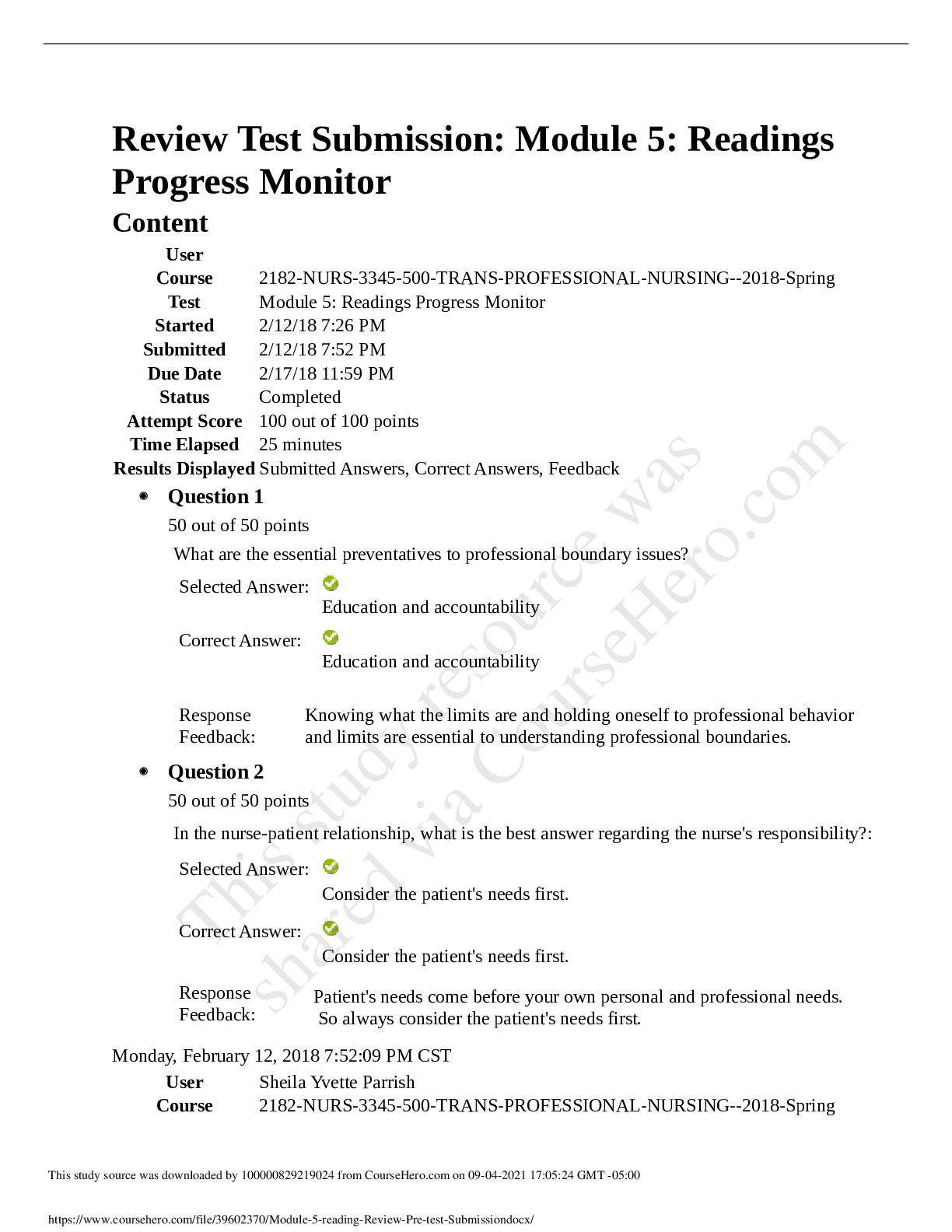
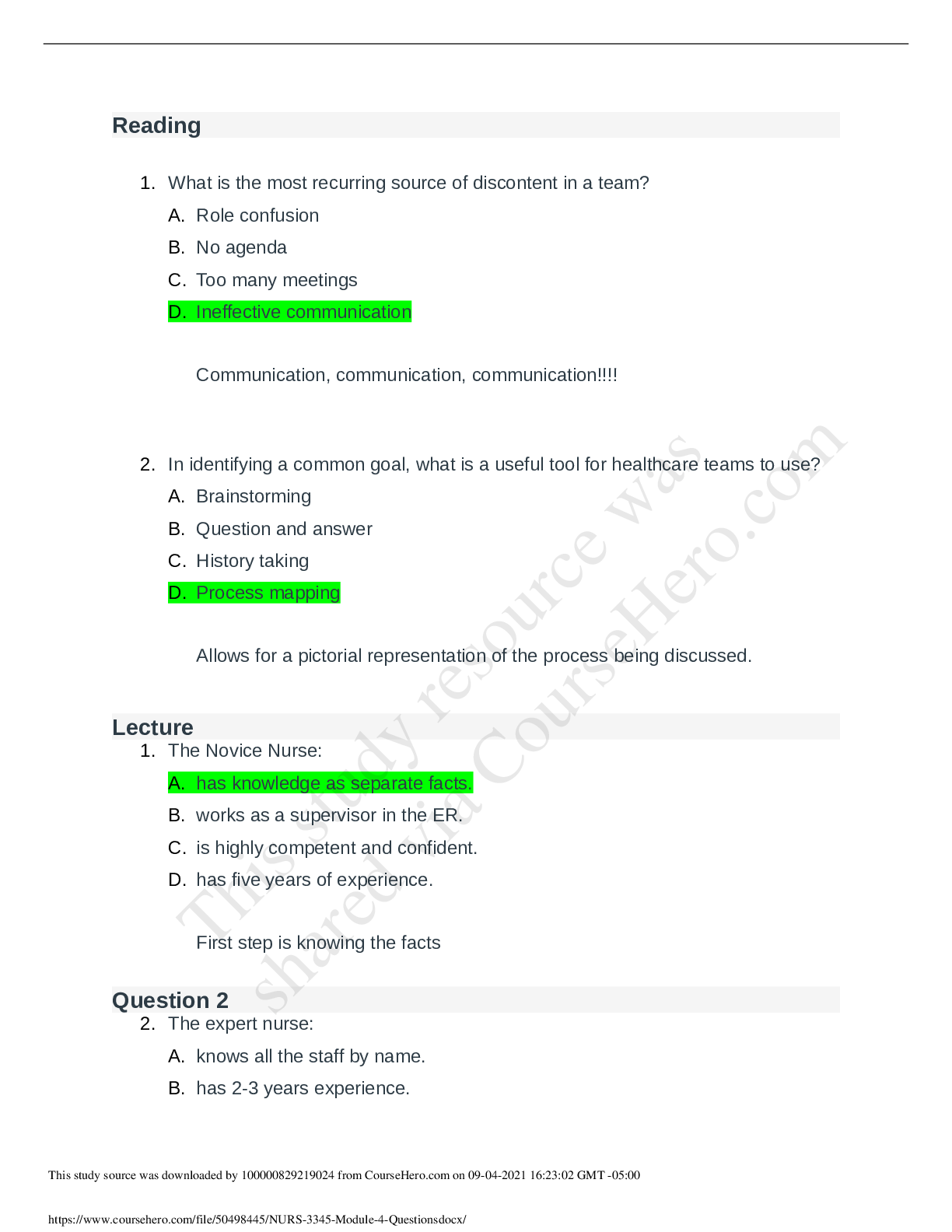

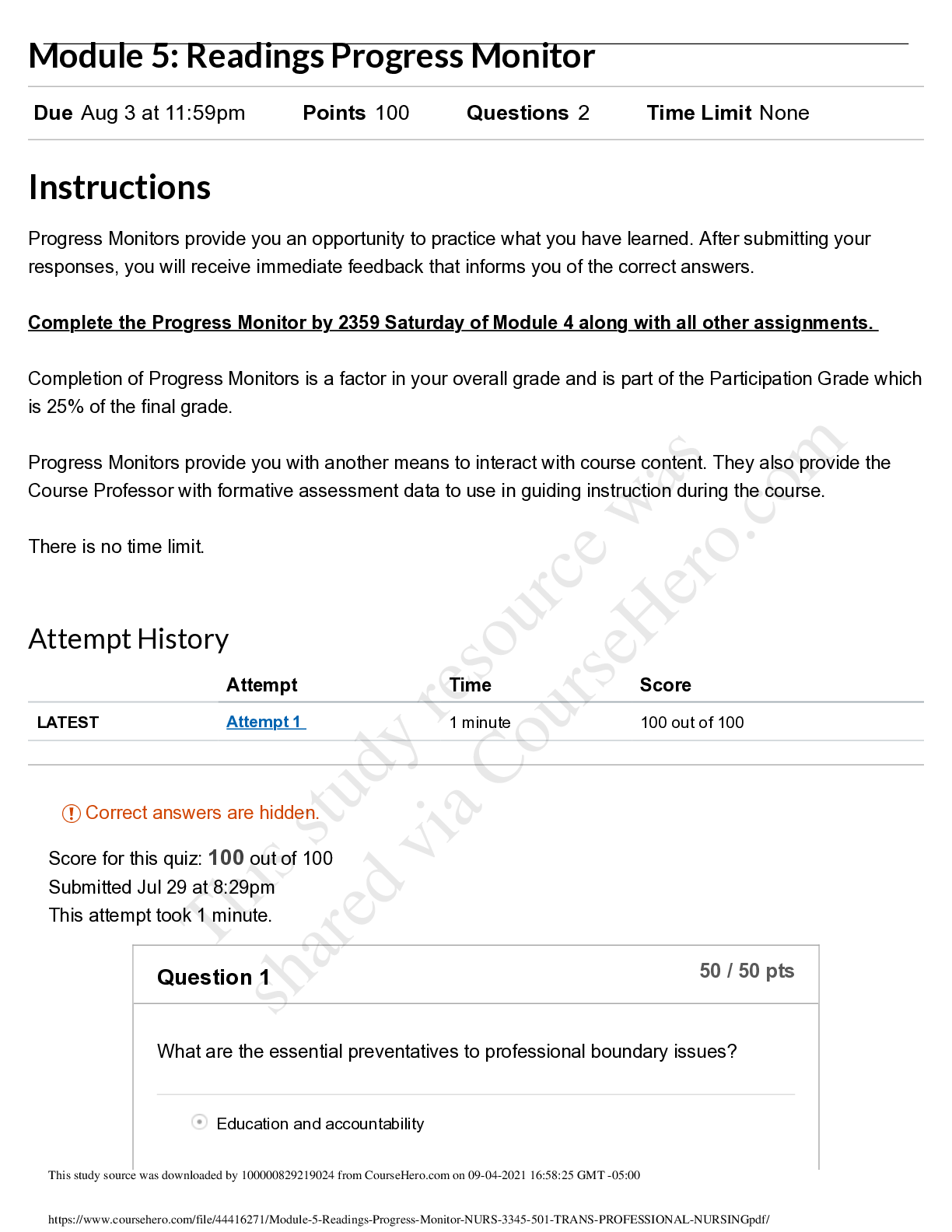
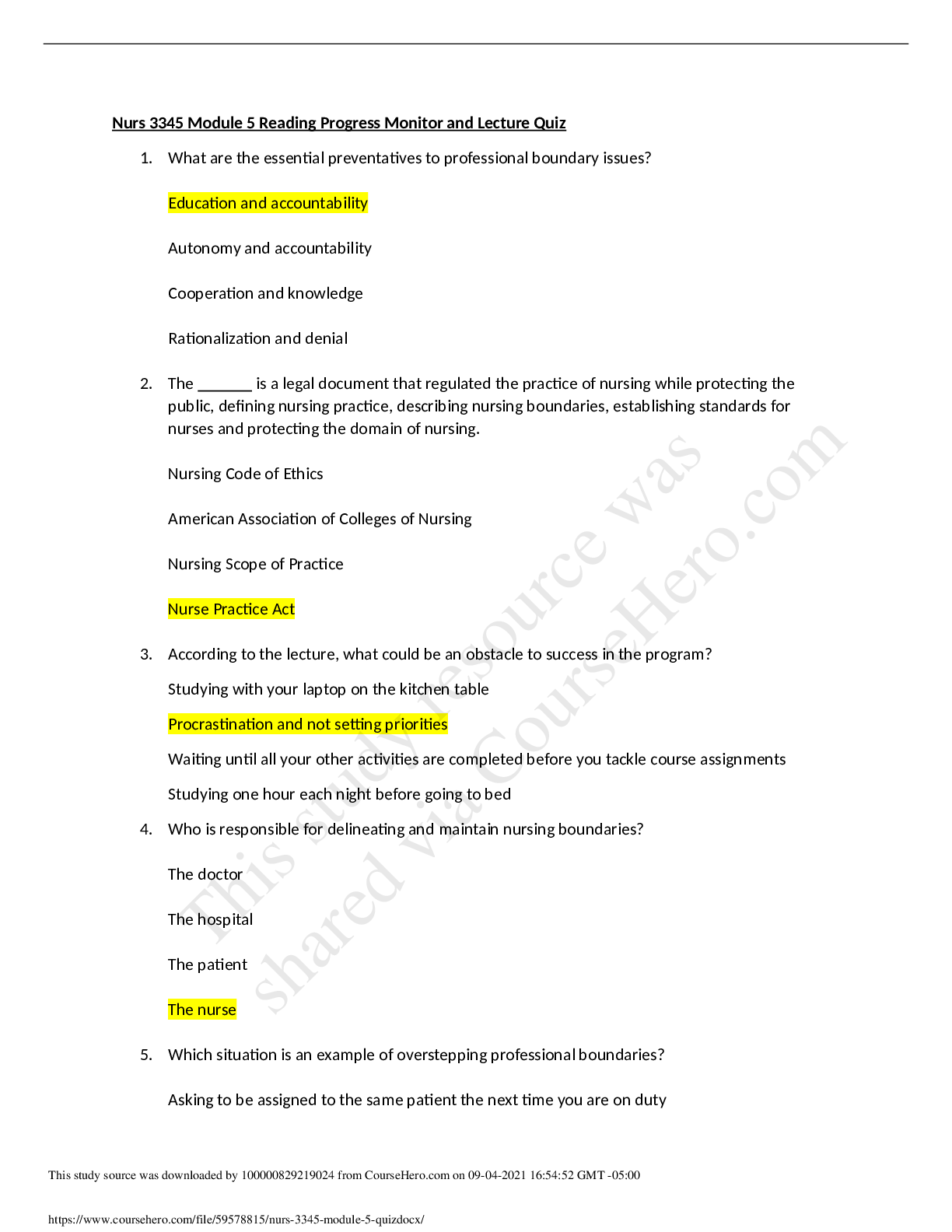
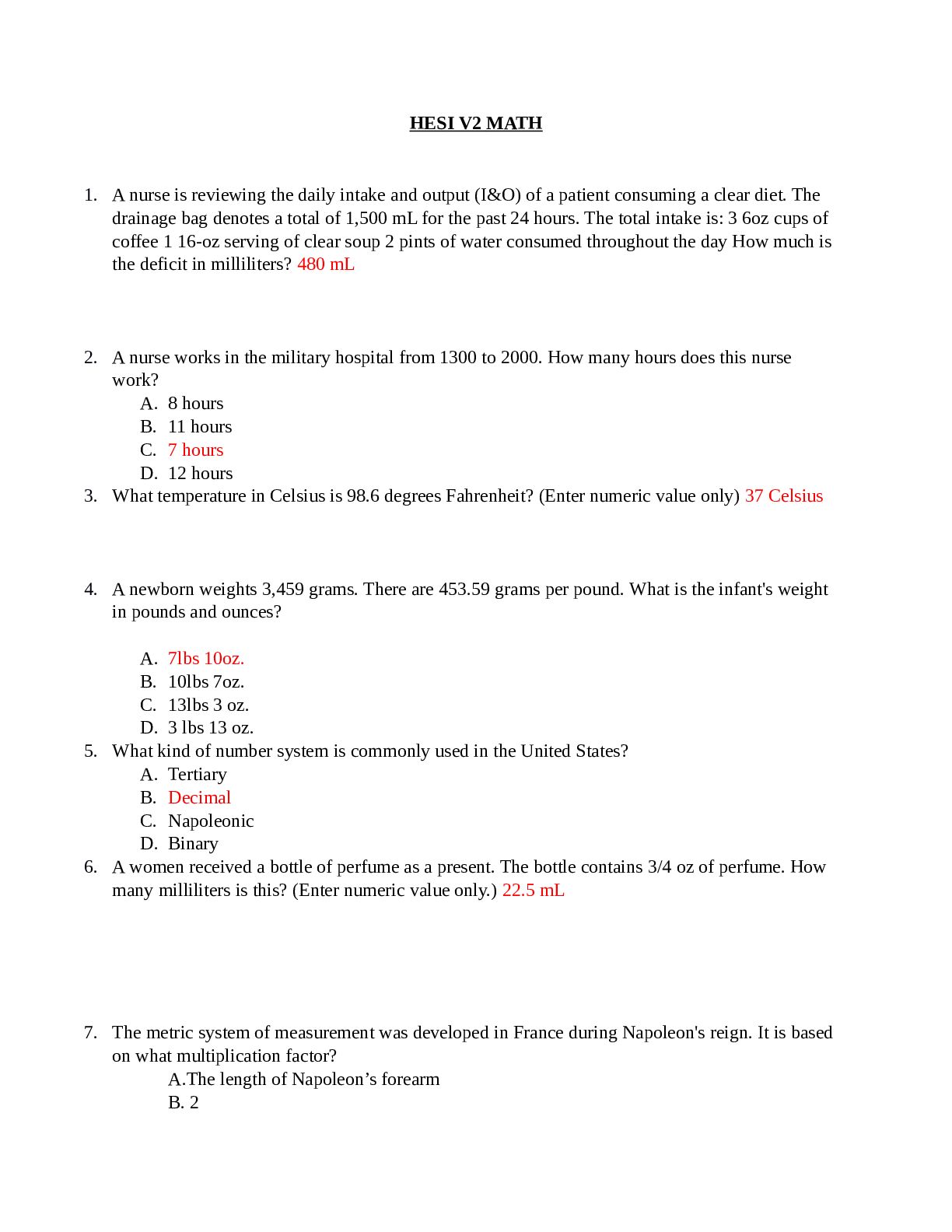
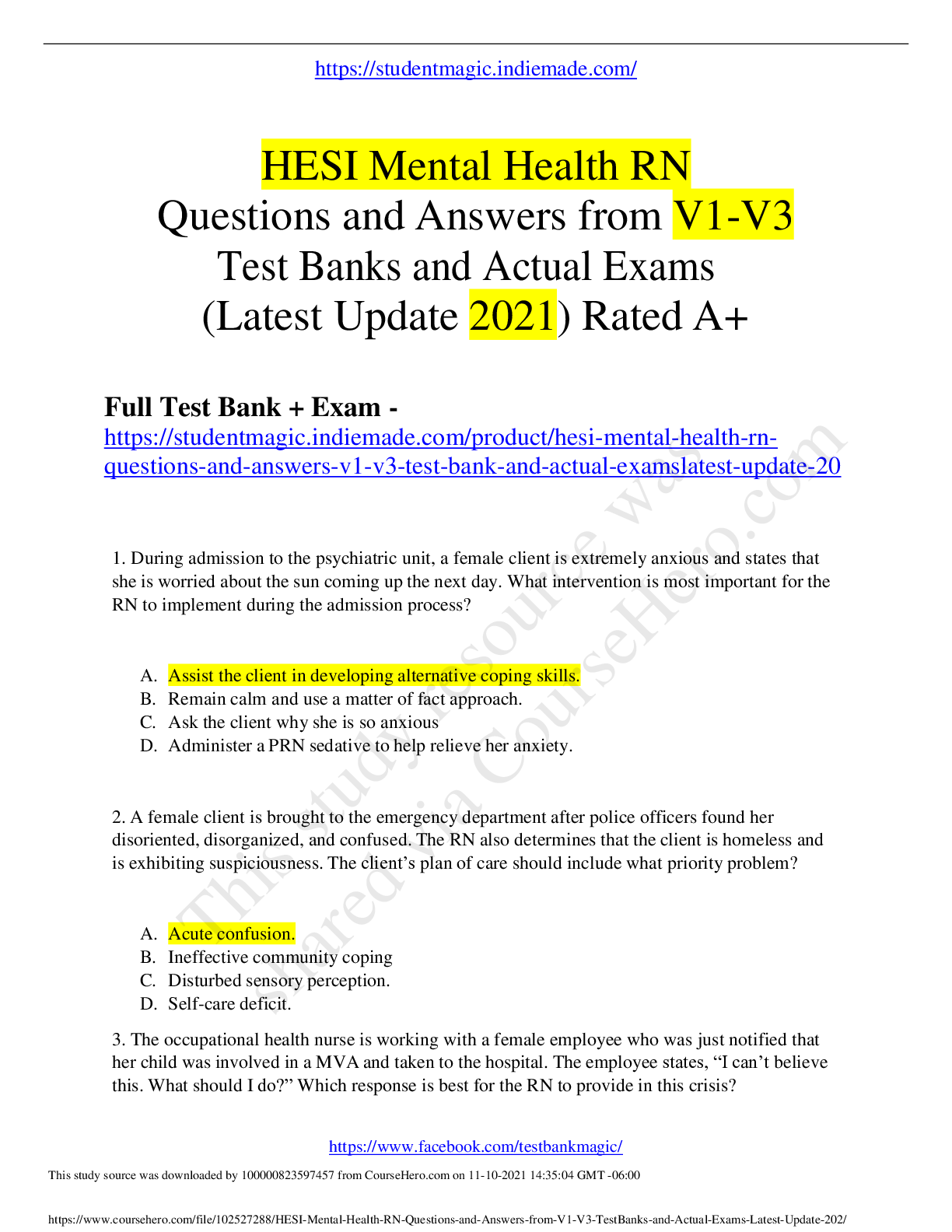
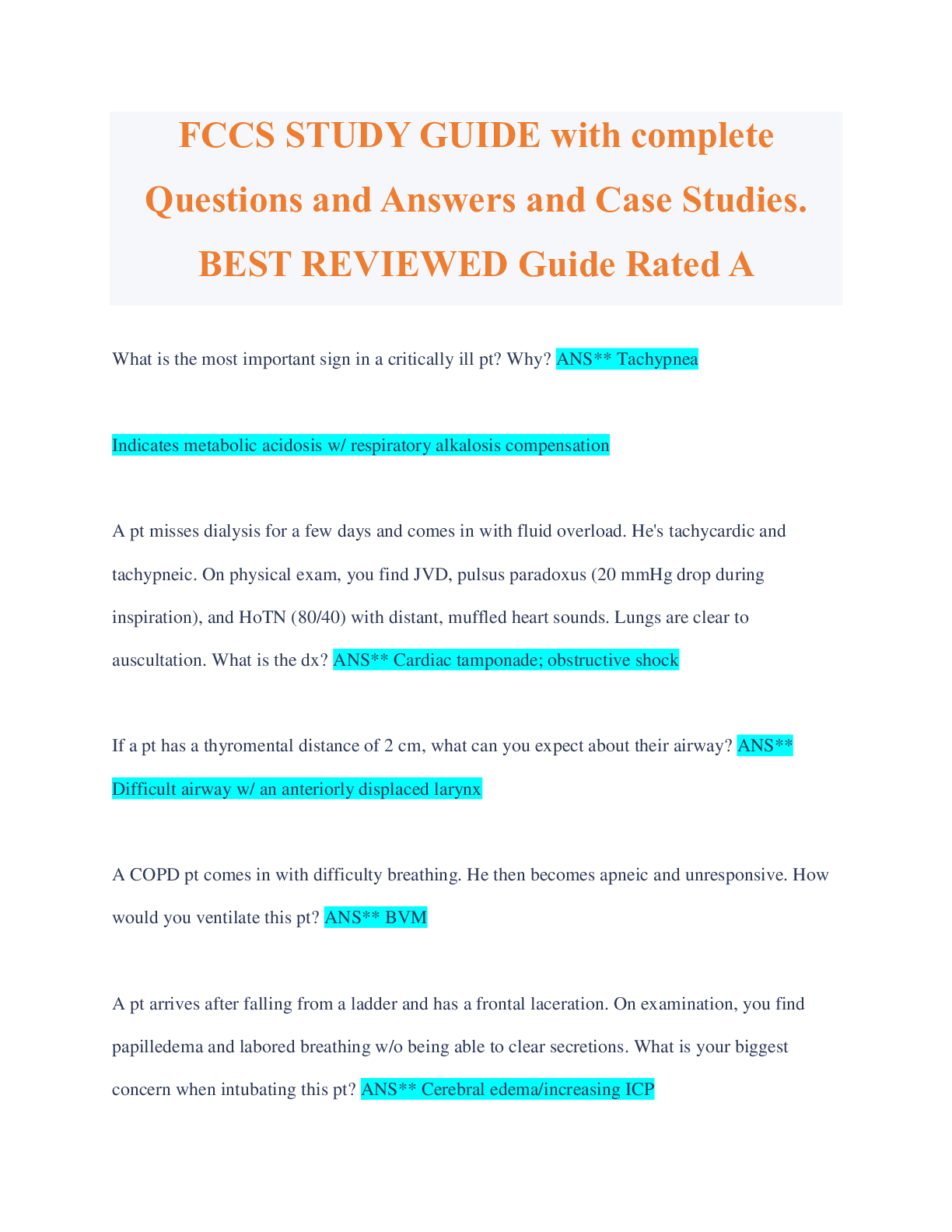

.png)






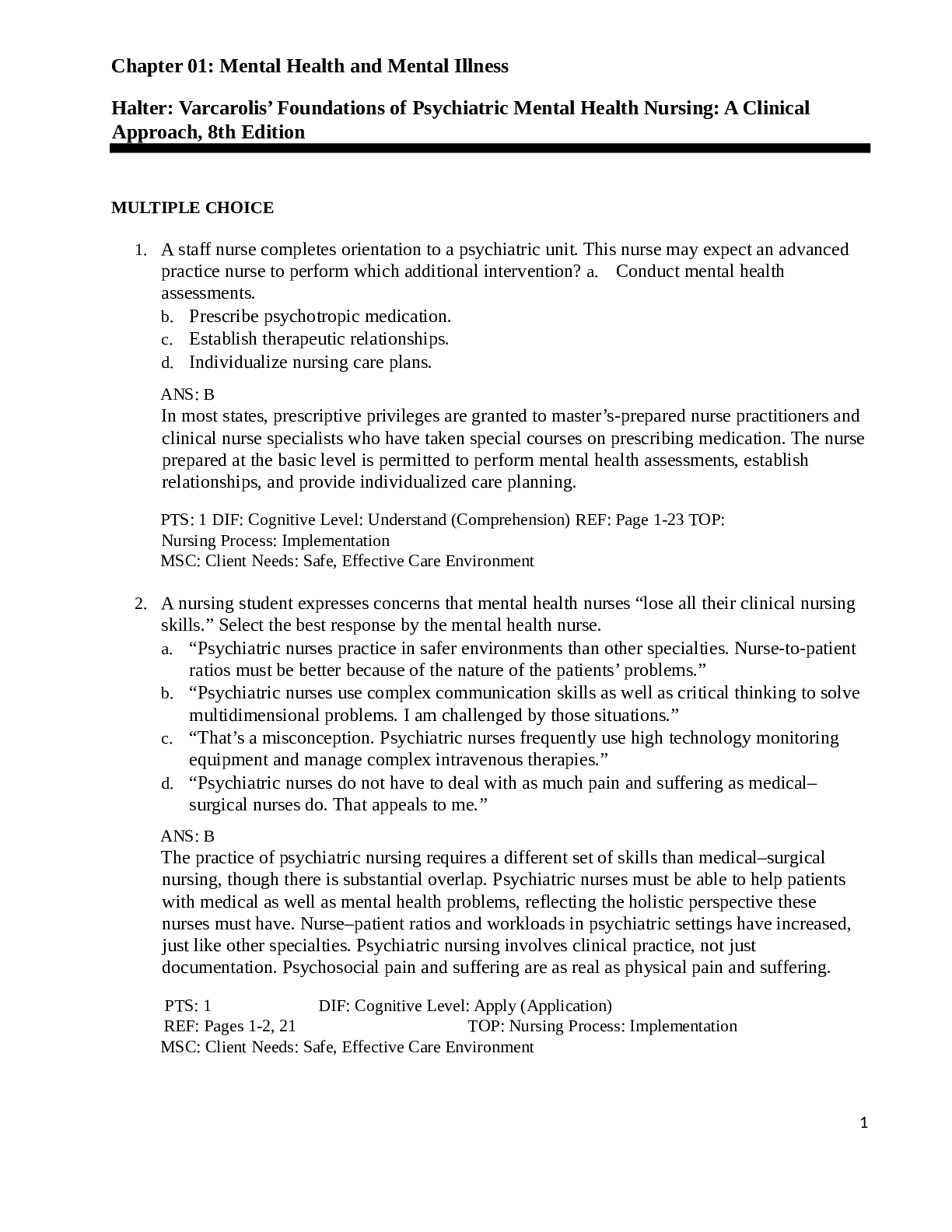
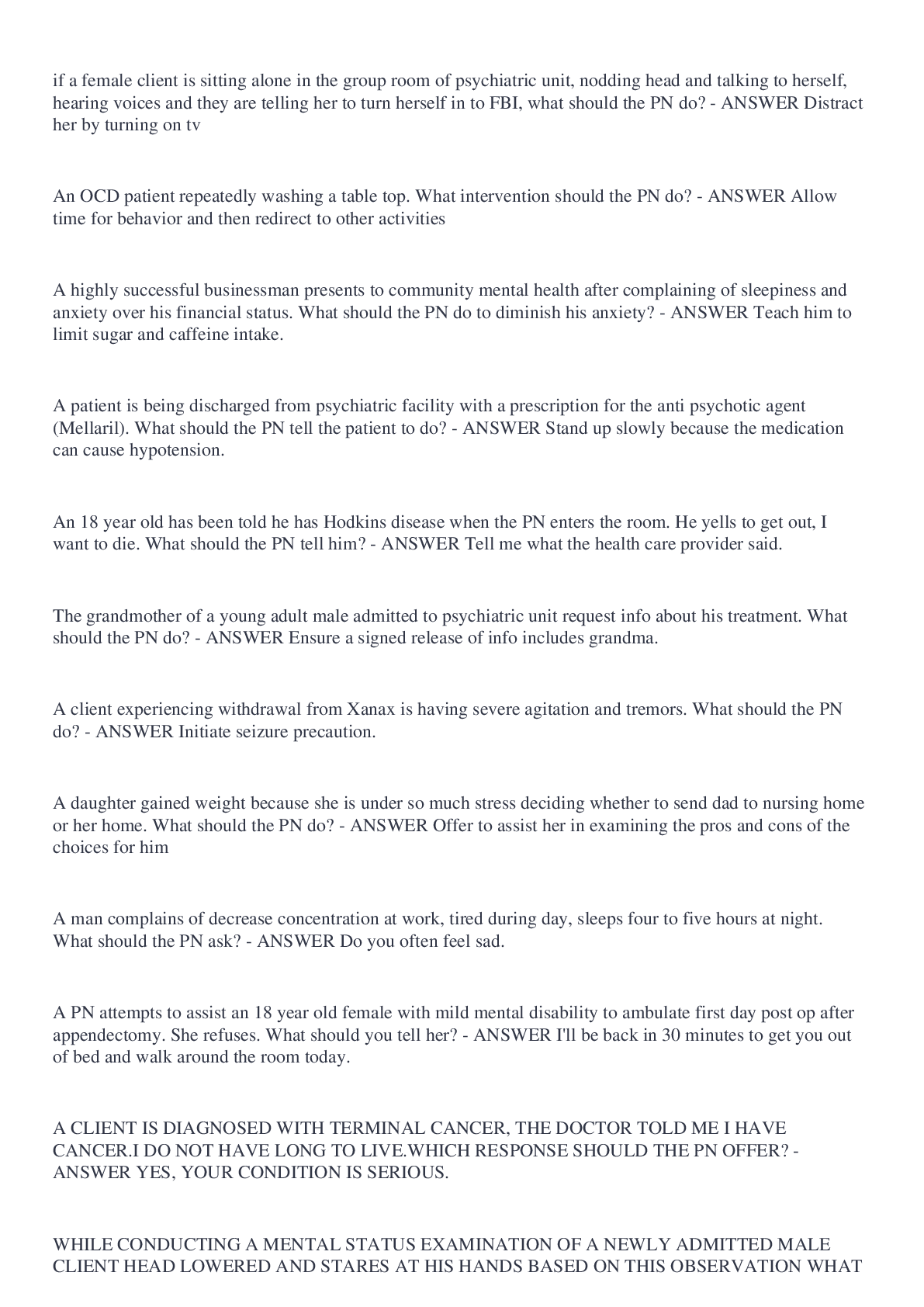

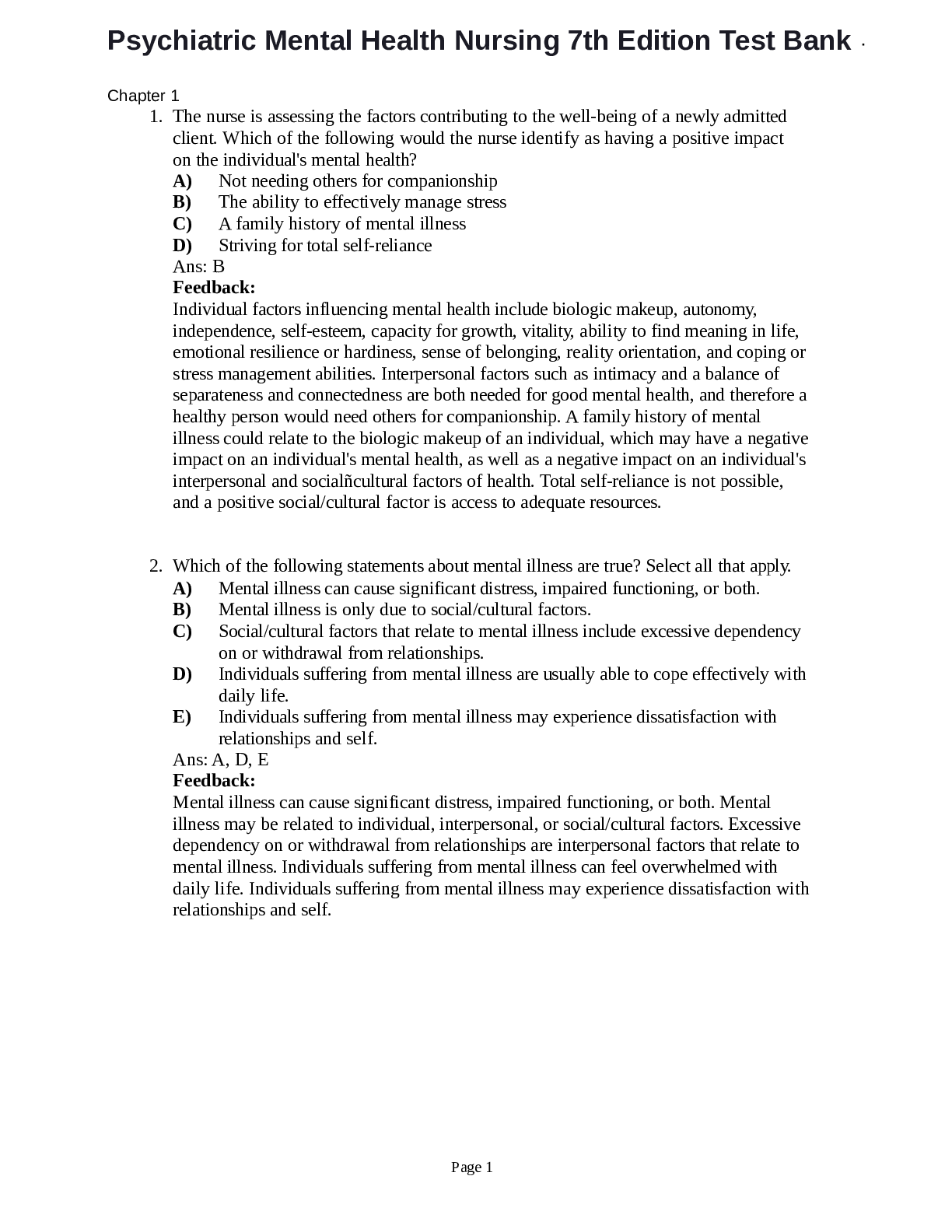
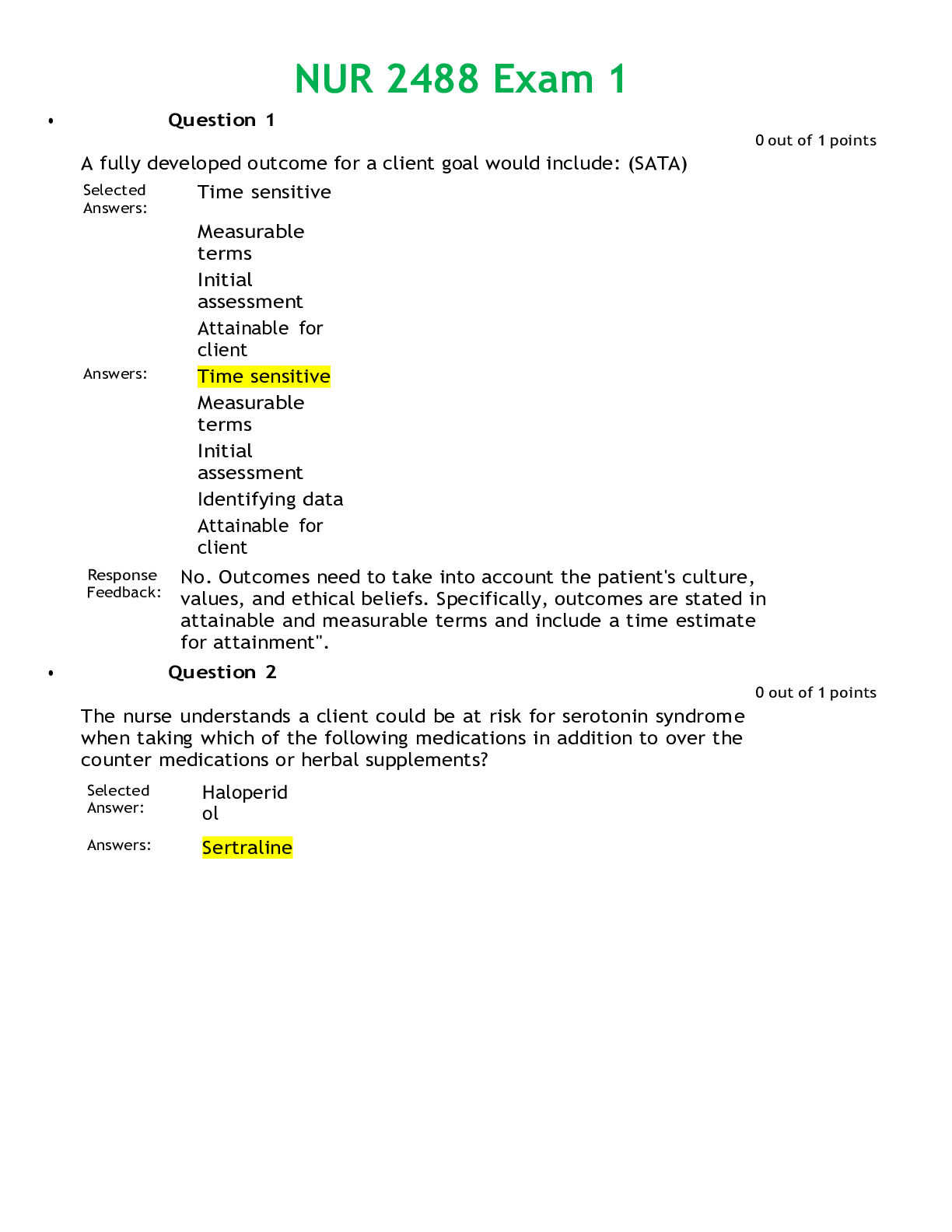
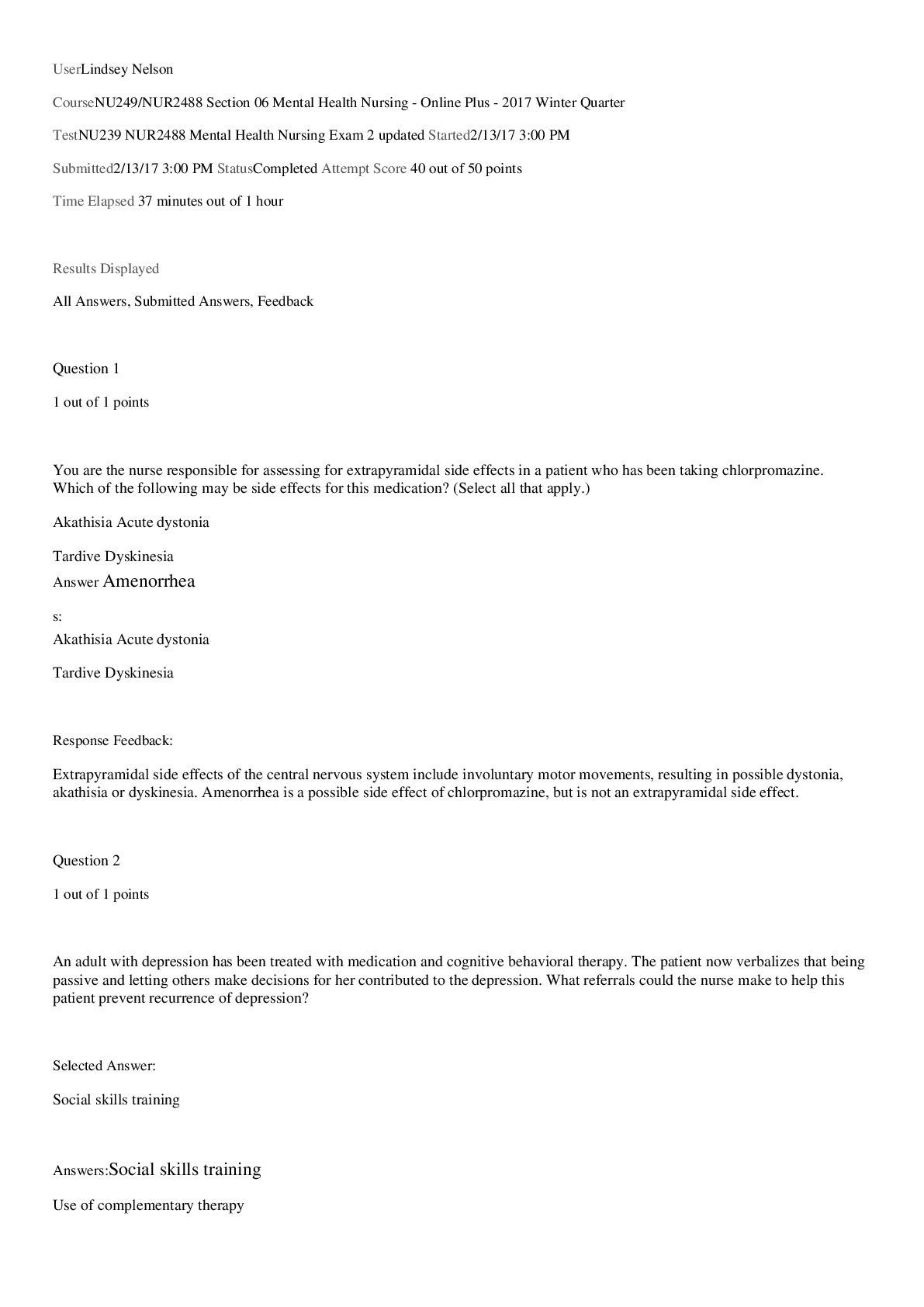
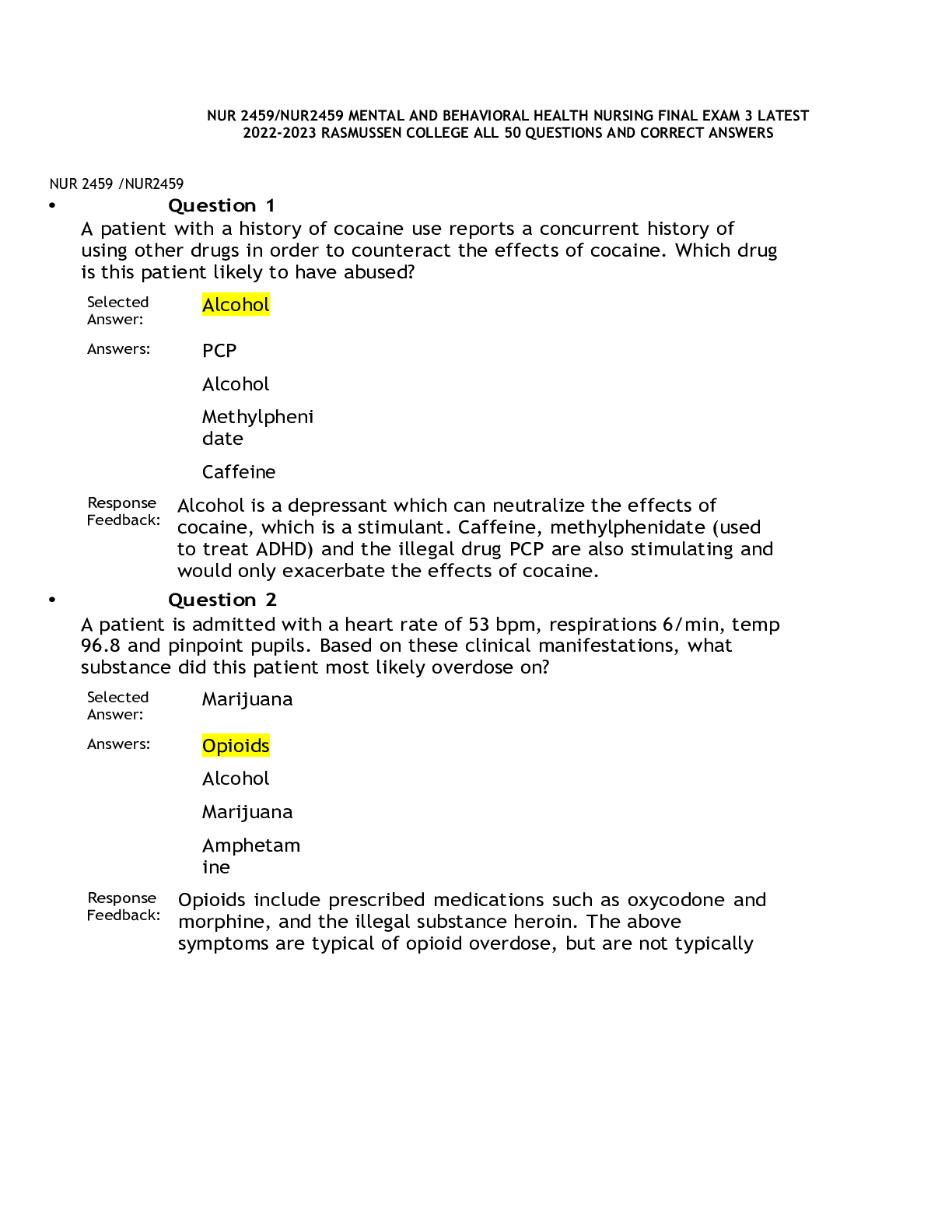
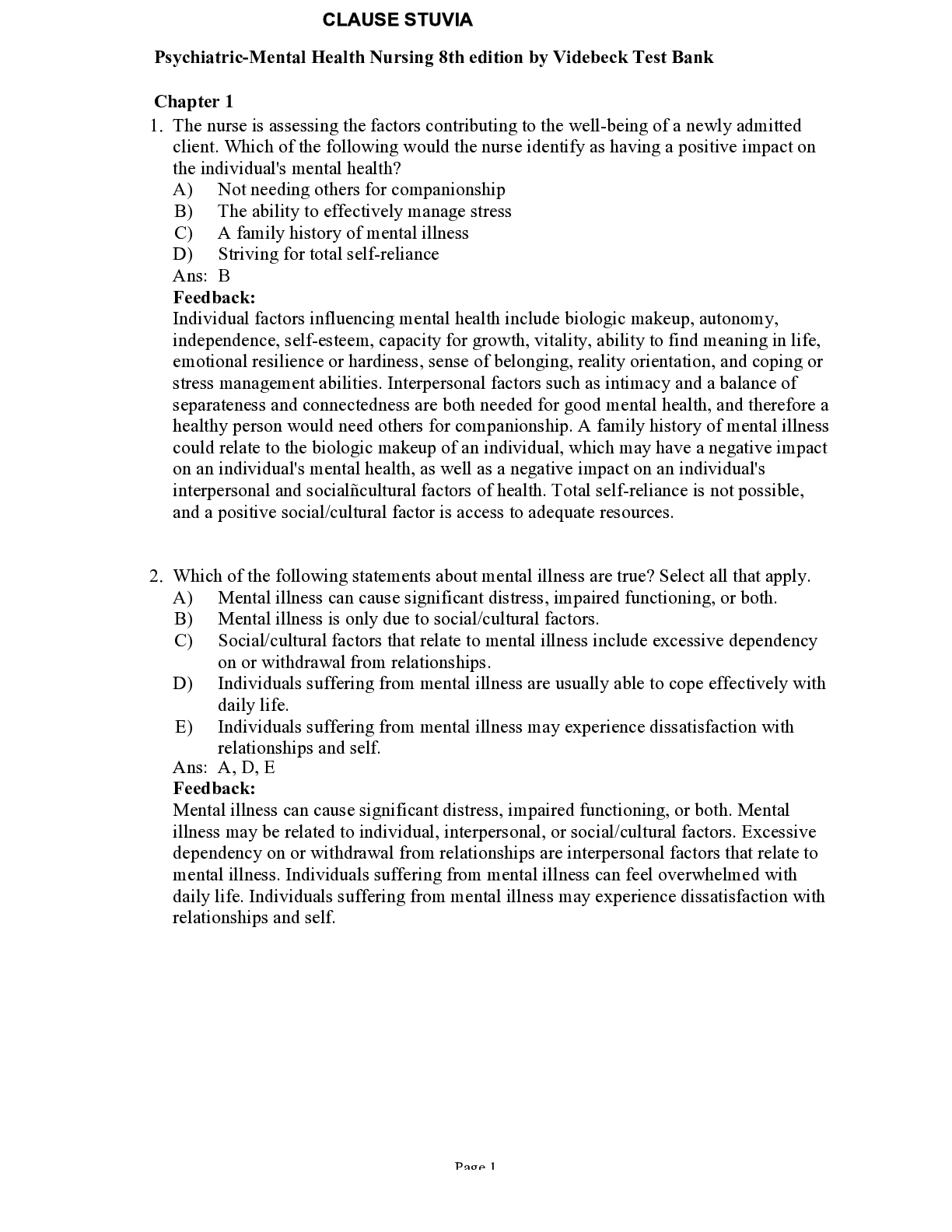
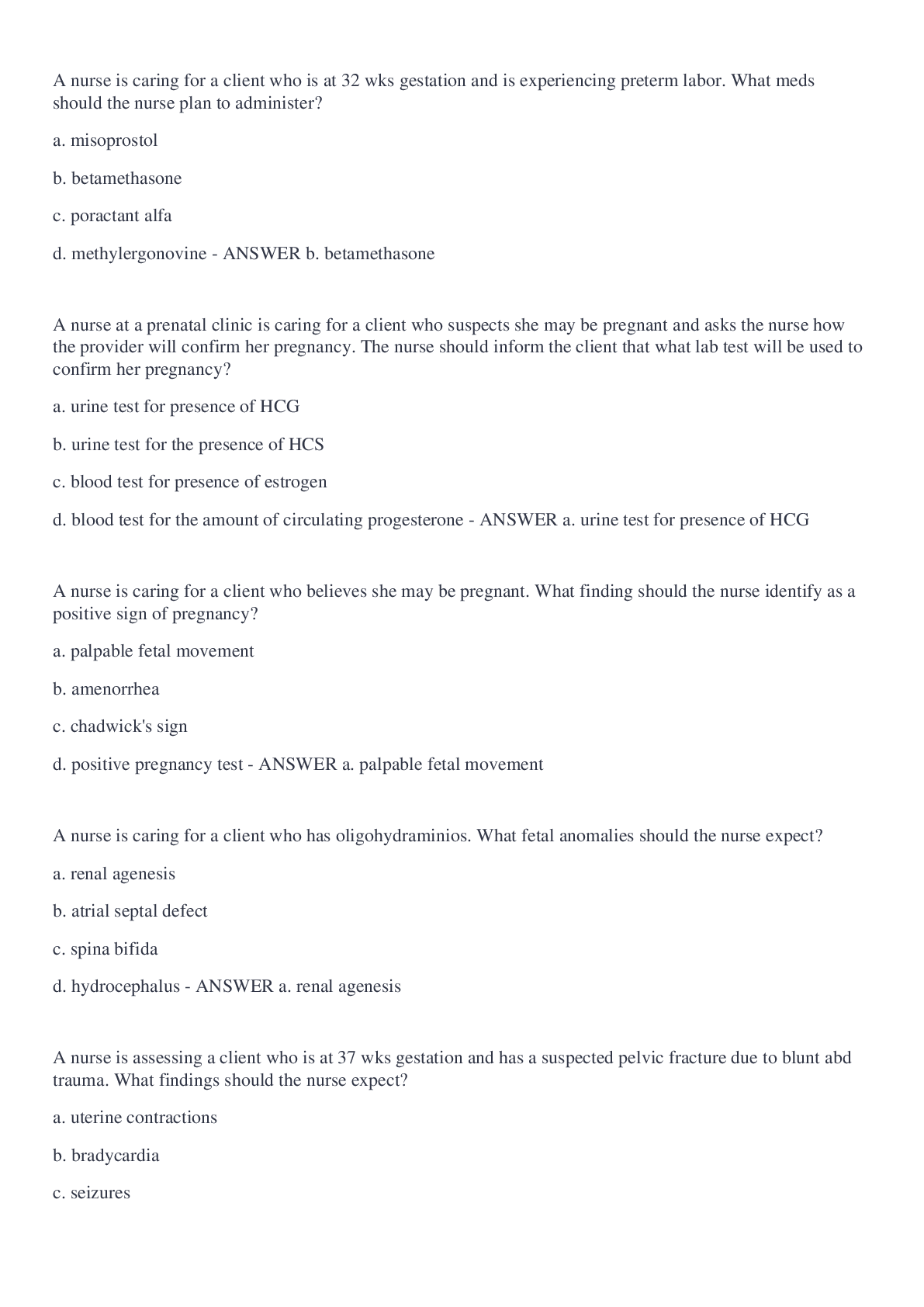
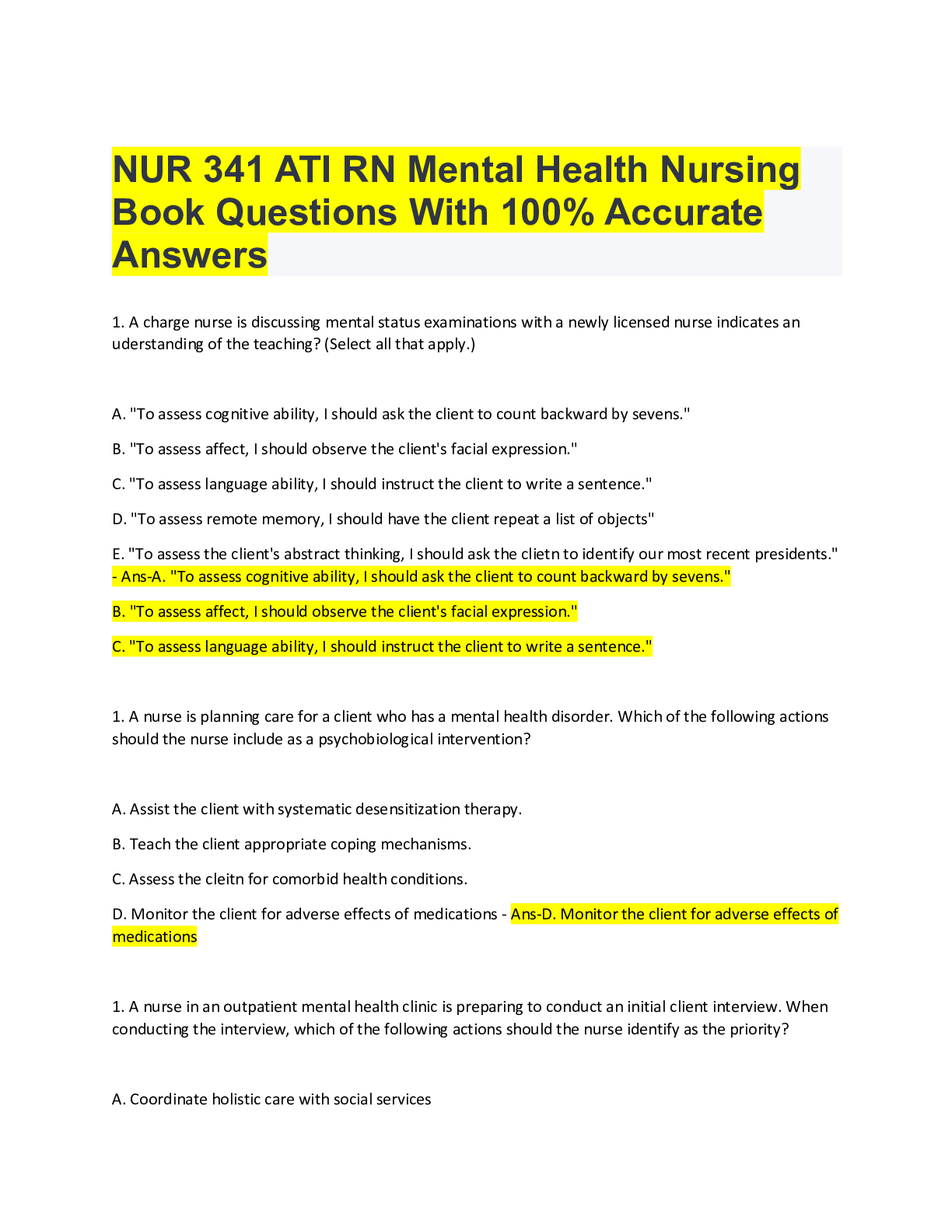
.png)

